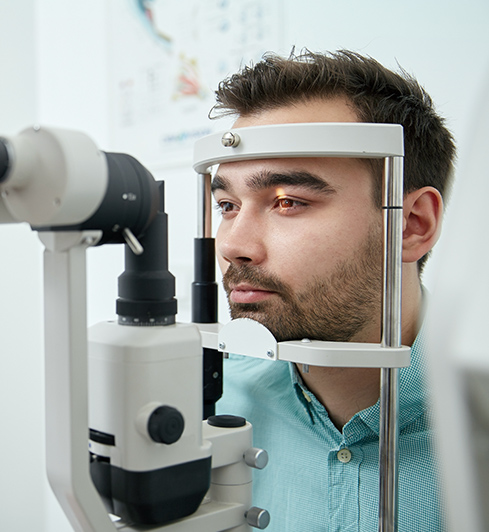How Does Diabetes Affect My Eyes?
Your optometrist has an important role to play in your overall health. A doctor can manage your diabetes, but you’ll need an eye care professional to ensure your vision remains clear.
Diabetes can impact the eyes in many ways:
Diabetic Retinopathy
The light-sensitive cells in the retina are responsible for processing focused light into a picture that is interpreted by the brain. Diabetic retinopathy impacts this vital layer of the eye and is a common vision problem for adults with diabetes.
Consistently high levels of blood sugar—and the often corresponding high blood pressure—can damage the tiny blood vessels in your retina. Generally, this impacts both eyes. If blood vessels in the retina bulge or burst, they can leak blood and fluid into the eye, causing vision problems.
Diabetic Macular Edema
Those with diabetic retinopathy are often also at risk for diabetic macular edema. The 2 conditions often occur alongside one another. Diabetic macular edema occurs when the blood vessels in the retina leak into the macula.
The macula is the central part of the retina responsible for sharp, detailed vision. If it’s damaged, you may lose your ability to read, drive, or even recognize facial features.
Cataracts
The natural lenses in your eyes are responsible for clear vision. While it’s normal that they become cloudy as we age, diabetes can hasten the process. Those with diabetes have a higher chance of developing cataracts at a much younger age.
Elevated levels of glucose in your blood might be responsible for clouding in the internal lenses. If cataracts become severe, surgery may be required.
Glaucoma
When pressure inside the eye builds, either suddenly or over time, glaucoma can develop. This disease damages your optic nerve which can lead to vision loss.
If you have diabetes, your chances of developing glaucoma double.
















